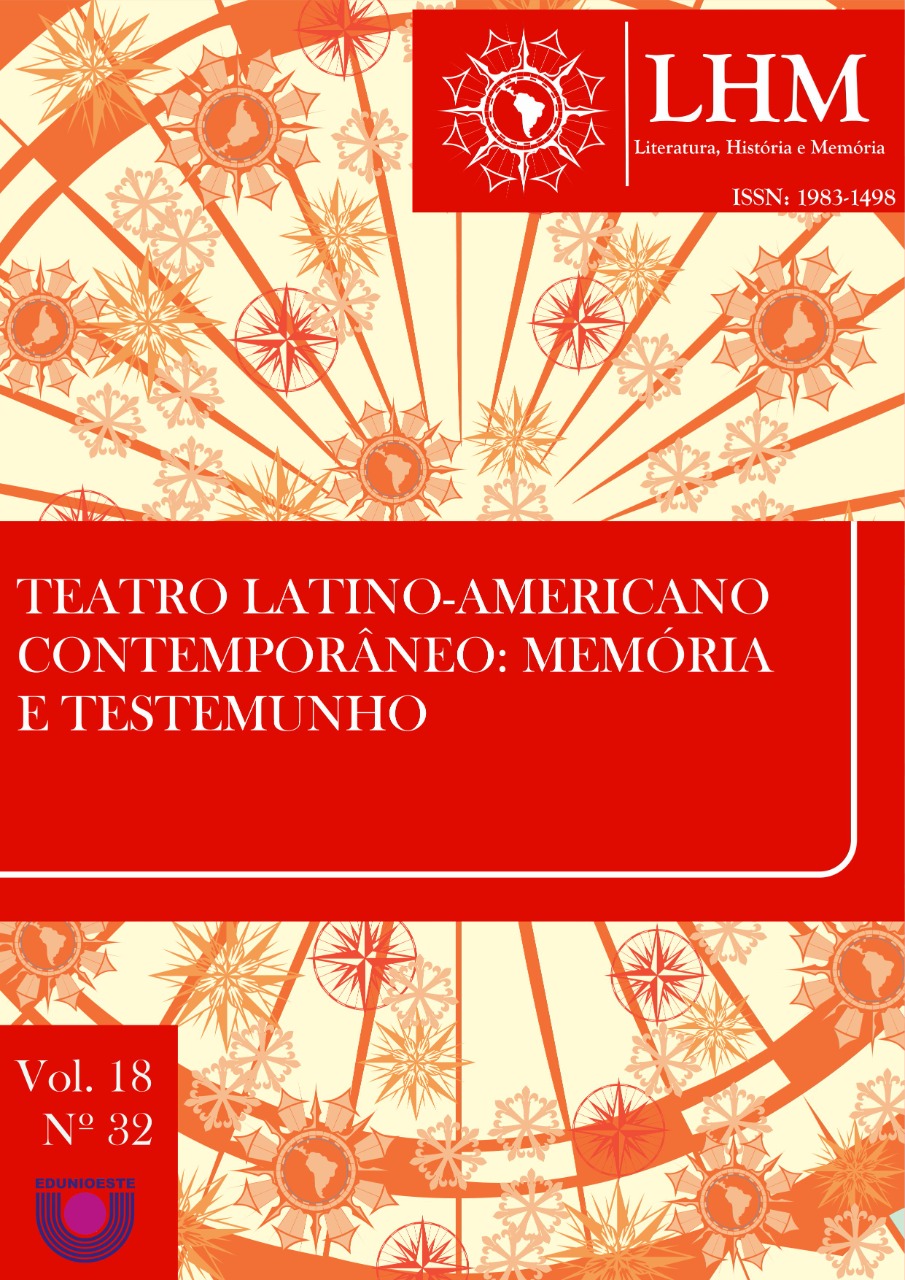A demonização do pensamento científico
uma leitura do Informe sobre ciegos, de Ernesto Sabato
DOI:
https://doi.org/10.48075/rlhm.v18i32.28807Resumen
Para o escritor argentino Ernesto Sabato (1911-2011) a alma seria o verdadeiro domínio da ficção. Daí sua necessidade de expor o que vai na mente de seus personagens, explorando seus medos, angústias e preocupações. Sabato não acreditava em apenas descrever o que se passava no mundo, para ele, era preciso dissecar ideias e sentimentos, buscando uma espécie de transcendência que explorasse os limites da existência humana. Esse movimento aparece em seus três romances, ganhando destaque em Informe sobre ciegos, inicialmente um capítulo de Sobre héroes y tumbas (1961), que assumiu tal importância e interesse que muitas editoras argentinas passaram a publicá-lo de forma independente. Assim, por tratar-se de um texto fundamental na narrativa sabatiana, neste artigo será analisado o Informe sobre ciegos procurando estabelecer ligações com os elementos que surgem do exame da sua ensaística, em especial, as concepções do autor sobre ciência e literatura. Para fundamentar essa análise são utilizados como referência, além de parte da fortuna crítica do autor, alguns dos ensaios escritos por Sabato.
Descargas
Publicado
Cómo citar
Número
Sección
Licencia

Esta obra está bajo una licencia internacional Creative Commons Atribución-NoComercial-CompartirIgual 4.0.
Aviso de Direito Autoral Creative Commons
Política para Periódicos de Acesso Livre
Autores que publicam nesta revista concordam com os seguintes termos:
1. Autores mantém os direitos autorais e concedem à revista o direito de primeira publicação, com o trabalho simultaneamente licenciado sob a Licença Creative Commons Attribution que permite o compartilhamento do trabalho com reconhecimento da autoria e publicação inicial nesta revista.2. Autores têm autorização para assumir contratos adicionais separadamente, para distribuição não-exclusiva da versão do trabalho publicada nesta revista (ex.: publicar em repositório institucional ou como capítulo de livro), com reconhecimento de autoria e publicação inicial nesta revista.
3. Autores têm permissão e são estimulados a publicar e distribuir seu trabalho online (ex.: em repositórios institucionais ou na sua página pessoal) a qualquer ponto antes ou durante o processo editorial, já que isso pode gerar alterações produtivas, bem como aumentar o impacto e a citação do trabalho publicado (Veja O Efeito do Acesso Livre).
Licença Creative Commons
Esta obra está licenciada com uma Licença Creative Commons Atribuição-NãoComercial-CompartilhaIgual 4.0 Internacional, o que permite compartilhar, copiar, distribuir, exibir, reproduzir, a totalidade ou partes desde que não tenha objetivo comercial e sejam citados os autores e a fonte.


